BTC
$ 66,954 USD
$ 66,954 USD
$ 1.3859 trillion USD
$ 1.3859t USD
$ 45.6611 billion USD
$ 45.6611b USD
$ 517.961 billion USD
$ 517.961b USD
19.987 million BTC
Bitcoin-related information
Issue Time
2008-10-31
Platform pertained to
--
Current coin price
$66,954USD
Market Cap
$1.3859tUSD
Volume of Transaction
24h
$45.6611bUSD
Circulating supply
19.987mBTC
Volume of Transaction
7d
$517.961bUSD
Change
24h
-1.95%
Number of Markets
12559
Github Messages
More
Warehouse
Bitcoin
Github's IP Address
[Copy]
Codebase Size
4
Last Updated Time
2020-12-07 15:28:38
Language Involved
--
Agreement
--
Crypto token price conversion
Current Rate0
0.00USD
WikiBit Risk Alerts
1The number of the negative comments received by WikiBit have reached 15 for this token in the past 3 months, please be aware of the risk and the potential scam!
BTC Price Chart
Bitcoin introduction
 Markets
Markets3H
-0.09%
1D
-1.95%
1W
-10.6%
1M
-22.93%
1Y
-27.96%
All
+51588.55%
| Aspect | Information |
|---|---|
| Short Name | BTC |
| Full Name | Bitcoin |
| Founded | 2009 |
| Main Founders | Satoshi Nakamoto |
| Support Exchanges | Bitfinex, Bitstamp, Crypto.com, Coinbase, Gemini, Kraken, OKCoin,Binance, Currency.com |
| Storage Wallet | Various wallets such as hardware wallets (e.g., Ledger, Trezor), software wallets (e.g., Electrum, Mycelium), and online wallets (e.g., blockchain.com, Coinbase Wallet) |
| Customer Support | Bitcoin.com Support Center:https://www.bitcoin.com/contact-us/,Bitcoin Forums and Communities |
Overview of BTC
BTC, short for Bitcoin, is primarily considered a DeFi (decentralized finance) token that was created in 2009. It was proposed and implemented by a pseudonymous person or group of people named Satoshi Nakamoto. Bitcoin is categorized as a cryptocurrency and performs transactions on a peer-to-peer network without the need for a central authority.
Bitcoin transactions are stored in blocks and linked together to form a chain known as the blockchain, which is maintained by network participants called miners. Bitcoin can be traded on several cryptocurrency exchanges, including Binance, Coinbase, Kraken, Bitstamp, and many others.
How Was BTC Started?
Bitcoin was first introduced to the world through a white paper titled “Bitcoin: A Peer-to-Peer Electronic Cash System,” which was published on a cryptography mailing list in October 2008. The author of the white paper went by the pseudonym Satoshi Nakamoto. Although attempts have been made to uncover Nakamoto's real identity, it remains unknown.
The Bitcoin network itself came into existence on January 3, 2009, with Nakamoto mining the first block of bitcoins, often referred to as the “genesis block” or “block 0.” This block contained the embedded message: “The Times 03/Jan/2009 Chancellor on brink of second bailout for banks,” a reference to a headline about the ongoing Global Financial Crisis. This has been widely interpreted as a remark on the instability caused by fractional-reserve banking.
Pros and Cons
| Pros | Cons |
|---|---|
| · Decentralized systems | · Scalability challenges |
| · High liquidity | · Regulatory issues |
| · Transparency of transactions | · Market volatility |
| · Accessible worldwide | · Potential for misuse |
| · Established and widely accepted | · Carbon footprint due to mining process |
BTC Price Prediction
Over the coming decades, BTC's price is expected to experience fluctuations. By 2030, the trading range is projected to be between $167,984.1 and $194,883.4. In 2040, our forecast suggests BTC could reach a peak price of $381,521.7,with a potential minimum around $319,379.3.Looking ahead to 2050, technical analysis indicates that BTC's price could range from $470,262.9 to $568,124.8,with an estimated average trading price of about $475,697.0.
Crypto Wallet
Bitcoin is a digital or virtual currency that uses cryptography for security. It is decentralized, meaning it is not subject to government or financial institution control. Bitcoin is often used to purchase goods and services online, and it can also be traded for other currencies.
To start using Bitcoin, you need to create a Bitcoin wallet. A Bitcoin wallet is a software program that stores your Bitcoin and allows you to send and receive payments. There are many different types of Bitcoin wallets available, and the best one for you will depend on your individual needs.
To download a Bitcoin wallet, you can visit the Bitcoin website at https://bitcoin.org/en/choose-your-wallet?step=5. From here, you can select a wallet from a list of recommended options. Once you have selected a wallet, you will be able to download it to your computer.
Once you have downloaded and installed a Bitcoin wallet, you will need to create a new account. This process is usually quite simple, and you will be prompted to enter some personal information, such as your name and email address. Once you have created an account, you will be able to store Bitcoin in your wallet and send and receive payments.
What Makes BTC Unique?
Bitcoin's primary innovation is its utilization of blockchain technology, which is a decentralized peer-to-peer network. Initiated in 2009, Bitcoin was the first cryptocurrency to employ this technology, creating a digital currency that operates without the need for a central authority. This is one of the main features that cities Bitcoin apart from traditional currencies.
Every transaction made using Bitcoin is recorded on its blockchain, a kind of public ledger visible to every participant in the network. This transparency differentiates Bitcoin from many traditional payment systems which lack public access to transaction data.
The process of “mining” is another distinctive feature of Bitcoin that many other cryptocurrencies have since adopted. Bitcoin mining involves network participants validating transactions and adding them to the blockchain. For their work, miners are rewarded with new Bitcoins, thereby introducing new tokens into the circulating supply.
How Does BTC Work?
Bitcoin operates on a peer-to-peer network where each transaction is verified by network nodes through cryptography and recorded in a public distributed ledger known as the blockchain. This process of verifying and adding transaction records to Bitcoin's public ledger is known as mining, where miners compete to solve complex mathematical problems with cryptographic hash functions.
Miners use specific software such as CGMiner, BFGMiner, EasyMiner, BitMinter, and many others to solve these complex cryptographic puzzles. The mining software works closely with the hardware and connects miners to the blockchain and Bitcoin network.
When it comes to mining equipment, Bitcoin miners typically use high-performance mining hardware such as Application-Specific Integrated Circuits (ASICs) and Graphics Processing Units (GPUs). Notably, ASICs are specially manufactured for Bitcoin mining and there are specific brands known for producing these devices, such as Bitmain and Canaan.
Bitcoin's network is designed to generate a new block roughly every 10 minutes. It was crafted this way to control the supply of Bitcoins on the market and avoid inflation. Therefore, the speed of mining in Bitcoin network is largely determined by the network itself, rather than the individual mining setup. Nevertheless, faster and more powerful equipment will have a better chance of winning the competitive mining process.
Exchanges to Buy BTC
Binance: Based in Malta, Binance is one of the largest and most popular cryptocurrency exchanges globally. It offers a robust trading platform for various cryptocurrencies, including Bitcoin.
Here is a summary of the steps about how to buy BTC tokens on Binance's website .
Create an account on Binance.
Verify your account.
Fund your account with fiat currency.
Go to the “Buy Crypto” page.
Select Bitcoin (BTC).
Enter the amount of BTC you want to buy.
Choose your payment method.
Review and confirm your transaction.
2. Coinbase: Coinbase is a US-based exchange that is known for its user-friendly interface. It allows users to buy, sell and store Bitcoin among other cryptocurrencies.
Steps to Buy BTC on Coinbase :
Log in to your Coinbase account: Go to the Coinbase website and log in to your account.
Click on the “Buy” button: In the top right corner of the Coinbase homepage, click on the “Buy” button.
Select “Bitcoin” (BTC): In the search bar, type “BTC” and select “Bitcoin” from the dropdown menu.
Enter the amount of BTC to buy: Enter the amount of BTC you want to buy in USD or BTC.
Select your payment method: Choose the payment method you want to use to buy BTC.
Review the transaction details: Review the transaction details, including the total amount, fees, and estimated time for the transaction to complete.
Click on the “Buy Bitcoin” button: If everything looks correct, click on the “Buy Bitcoin” button.
Confirm the transaction: Coinbase may ask you to confirm the transaction. Follow the on-screen instructions to complete the purchase.
3. Kraken: Founded in 2011, Kraken is one of the oldest Bitcoin exchanges. This US-based exchange allows trading between Bitcoin and several fiat currencies including USD, EUR, CAD, and JPY.
4. Bitstamp: Established in 2011, Bitstamp is a European-based exchange that supports Bitcoin trading. It is known for its high security standards and transparent fee structure.
In addition to these, other large exchanges such as Gemini, Bitfinex, eToro, and CEX.IO also support Bitcoin trading. It's also worth mentioning that each exchange has its own fee structure and security measures, so users should research and choose the one that best matches their needs.
All supported exchanges to buy BTC are as belows:
| International | Bitfinex, Bitstamp, Crypto.com, Coinbase, Gemini, Kraken, OKCoin | |
| Peer-to-Peer (P2P) | Bisq, BitQuick, Hodl Hodl, Local Bitcoins (bitcoin only), Noones | |
| Asia | Bahrain/Kuwait/Oman/Saudi Arabia | Currency.com, Rain |
| Indonesia | Indodax | |
| Israel | Bit2c, Bits of Gold, Currency.com | |
| Japan | bitbank, bitFlyer, BtcBox, Coincheck | |
| Malaysia | Currency.com, Luno | |
| Singapore | Binance, Currency.com, Mine Digital | |
| South Korea | Bithumb, Coinone, Currency.com, Korbit | |
| Taiwan | Currency.com, MaiCoin MAX, BitoPro | |
| Turkey | Koinim | |
| United Arab Emirates | BitOasis, Coinmama, Currency.com, Karsha, Rain | |
| Europe | Europe | AnyCoin Direct, Bitcoin.de, Bitfinex, bitFlyer, BitPanda, Bitvavo, Coinmama, Currency.com, Kriptomat, Paymium, The Rock Trading |
| Netherlands | Bitvavo | |
| Norway | Norwegian Block Exchange | |
| Poland | BitBay, Egera | |
| Ukraine | Kuna | |
| United Kingdom | Bittylicious, CoinCorner, Coinfloor (bitcoin only), CoinJar, Coinmama | |
| Africa | Nigeria | Luno, BuyCoins, Currency.com |
| South Africa | Currency.com, Luno | |
| Uganda | Binance, Currency.com | |
| North America | Canada | Bitbuy, Bitvo, Bull Bitcoin (bitcoin only), Canadian Bitcoins, Coinberry, Coinsmart, NDAX, Shakepay |
| Mexico | Bitso, Currency.com, Volabit | |
| United States | bitFlyer, Bittrex, Coinmama, Gemini, itBit, River Financial (bitcoin only), Swan Bitcoin (bitcoin only) | |
| South America | Argentina | ArgenBTC, Currency.com, SatoshiTango |
| Brazil | Brasil Bitcoin, Coinext, Currency.com, Mercado Bitcoin, NovaDAX, Walltime (bitcoin only) | |
| Chile/Colombia/Peru | Buda, Currency.com | |
| Venezuela | Cryptobuyer, Currency.com | |
| Australia | Bitaroo (bitcoin only), BTC Markets, CoinJar, CoinSpot, CoinTree, Digital Surge, HardBlock (bitcoin only), Independent Reserve, Mine Digital, paybtc (bitcoin only), Swyftx | |
| New Zealand | Bitaroo (bitcoin only), Independent Reserve, Kiwi-coin (bitcoin only), Mine Digital | |
How to Store BTC?
Wallets can exist on your computer, mobile device, or on a physical storage gadget. There are several types of Bitcoin wallets available:
1. Hardware Wallets: These are physical electronic devices that secure bitcoins offline, giving strong protection against computer vulnerabilities and online theft. Examples include Ledger and Trezor.
2. Software Wallets: These are applications that are downloaded and installed on your PC or smartphone. They offer high levels of security as long as they are kept protected from malware. Examples include Electrum, Mycelium and Bitcoin Core.
Is It Safe?
Security Measures for BTC Token
Bitcoin (BTC) and the Bitcoin network employ a range of security measures to safeguard users' funds and protect against unauthorized access:
Blockchain Security: BTC is built on the Bitcoin blockchain, which utilizes robust cryptography and consensus mechanisms to ensure the integrity and security of transactions. The blockchain's distributed ledger technology makes it very difficult to tamper with transactions or double-spend bitcoins.
Private Keys: Users' private keys, which are essential for accessing and controlling their bitcoins, are stored offline and never transmitted to Coinbase or any other third-party servers. Private keys are typically stored on secure hardware wallets or encrypted software wallets.
Two-Factor Authentication (2FA): Coinbase and other cryptocurrency exchanges offer 2FA, which adds an extra layer of protection by requiring users to enter a unique code from their mobile device in addition to their password when logging in or performing sensitive actions.
Password Security: Coinbase enforces strong password requirements, including minimum length, complexity, and regular password changes.
Cold Storage: For large amounts of BTC, cold storage wallets, such as hardware wallets, provide an additional layer of security by keeping the private keys offline and isolated from the internet.
Secure Storage Solutions: Coinbase employs a variety of secure storage solutions, including multi-signature wallets and geographically distributed data centers, to safeguard user funds.
Regular Security Audits: Coinbase undergoes regular security audits by reputable firms to identify and address potential vulnerabilities.
Continuous Monitoring and Updates: Coinbase actively monitors network activity, addresses potential threats promptly, and releases regular updates to enhance security.
Transfer Address for BTC Token
To transfer BTC, you'll need the recipient's Bitcoin wallet address. This address is a unique identifier for their wallet on the Bitcoin blockchain.
Here's how to find a Bitcoin wallet address:
Open the sender's Bitcoin wallet.
Click on the “Receive” or “Address” tab.
Copy the wallet address displayed under the “Your Bitcoin Address” section. Share this address with the person you want to send BTC to.
Remember to always verify the recipient's address carefully before sending any bitcoins to prevent accidental transfers.
How to Earn BTC Coins?
Direct Purchase from Exchanges: The most straightforward way to acquire BTC is to buy it directly from cryptocurrency exchanges like Coinbase, Binance, or Kraken. These platforms allow you to exchange fiat currencies (USD, EUR, etc.) for BTC.
Mining: Bitcoin mining involves verifying and adding transactions to the Bitcoin blockchain. In return for this work, miners receive rewards in the form of newly minted BTC and transaction fees. However, mining requires specialized hardware and significant electricity consumption, making it less accessible to the average individual.
Earning from Bitcoin Faucets: Bitcoin faucets are websites or apps that reward users with small amounts of BTC for completing tasks like watching ads, taking surveys, or solving puzzles. While the rewards are typically small, faucets can be a good way to accumulate a small amount of BTC over time.
Providing Services or Accepting Bitcoin Payments: If you have a skill or service to offer, you can accept Bitcoin as payment. This could include freelancing, selling goods online, or providing consulting services.
BTC Good investment market
- 1
- 2
- 3
- 4
- 5
Bitcoin User Reviews
Bitcoin News
TokenBitcoin Stable at $70,000: Will BTC Pump or Dump From Here?
Bitcoin is holding firm around the $70,000 level after one of its sharpest sell-offs this cycle, lea
2026-02-10 07:02
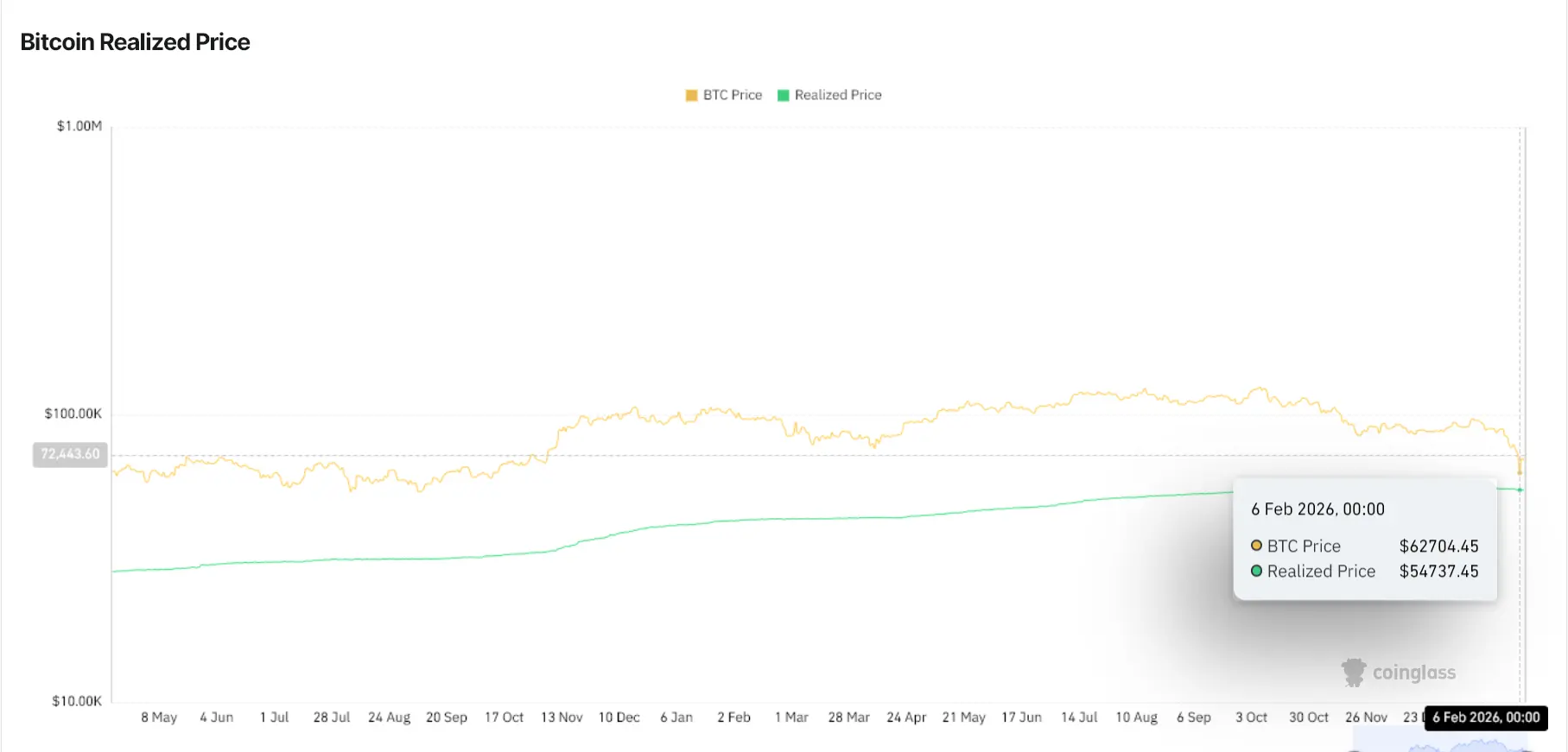
TokenXRP Still in Bull Market Versus Bitcoin, and XRP/BTC Chart Puts 51% Upside on the Menu
While most of the crypto market is dealing with the implications of yesterday's multibillion bloodba
2026-02-07 19:02
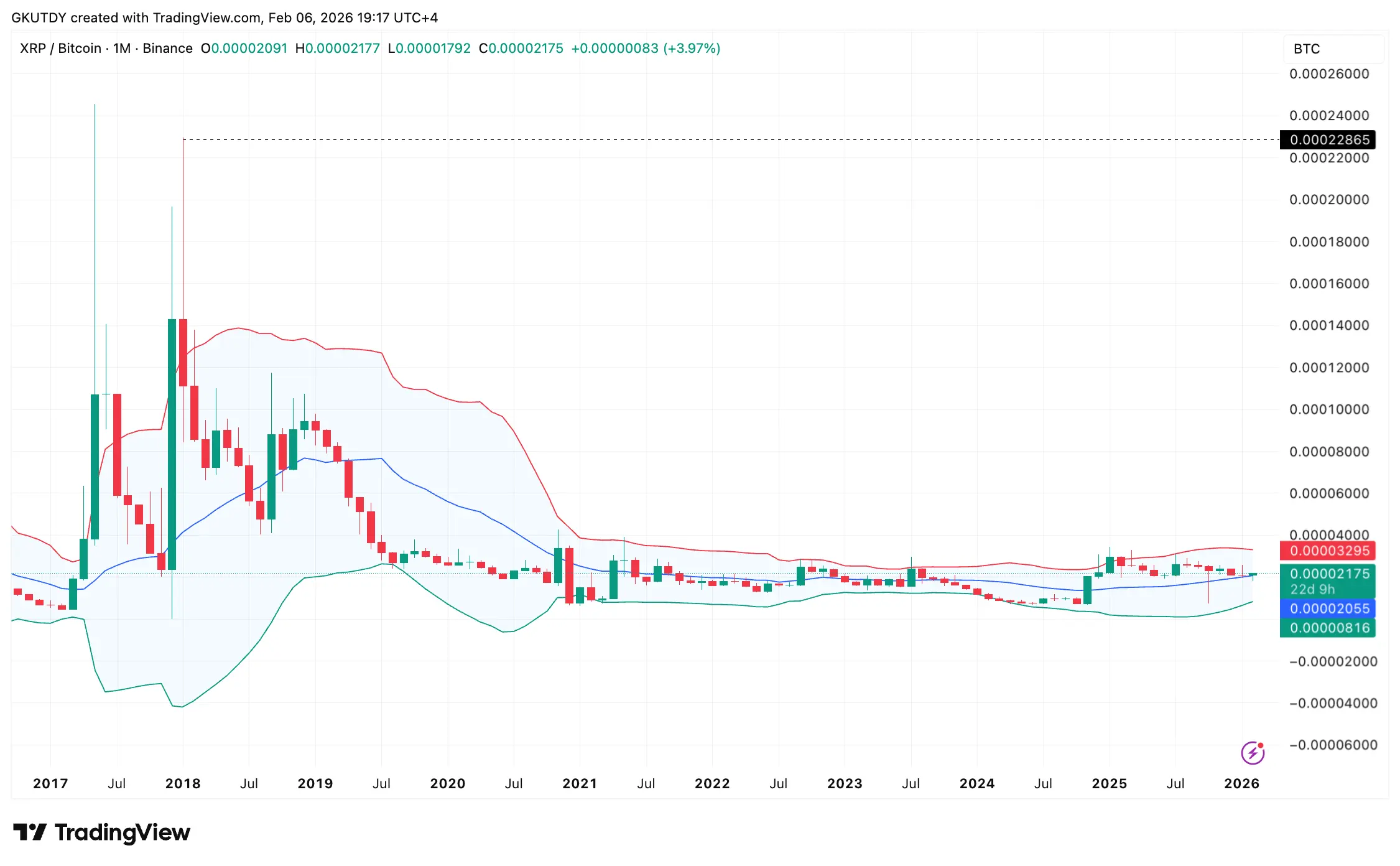
ExchangeGoogle search volume for 'Bitcoin' skyrockets amid BTC price swings
Google search volume for the term “Bitcoin” surged over the past week as the assets price briefly fe
2026-02-07 18:00

TokenCrypto Market Review: $500,000,000 in XRP Buying Volume, Shiba Inu (SHIB) Surprisingly Bullish, Will Bitcoin (BTC) Be Saved Before $50,000?
The market has been beaten up dramatically. Unfortunately, a quick recovery will not come after such
2026-02-07 09:02
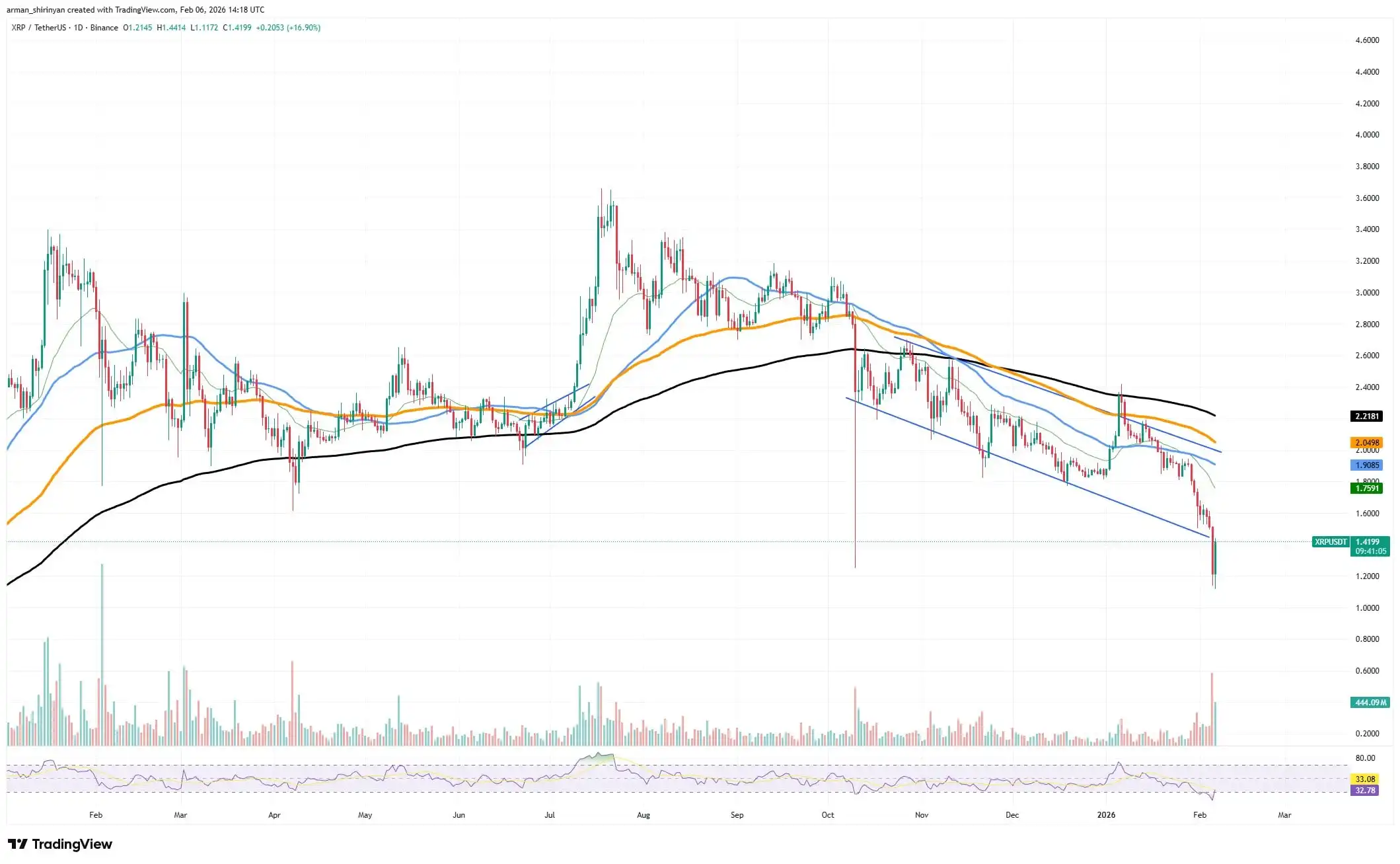
TokenBTC, ETH, XRP, ADA and SHIB Price Analysis for February 6
The crypto market is facing one of the biggest dumps in recent times, according to CoinMarketCap.$BT
2026-02-07 02:03
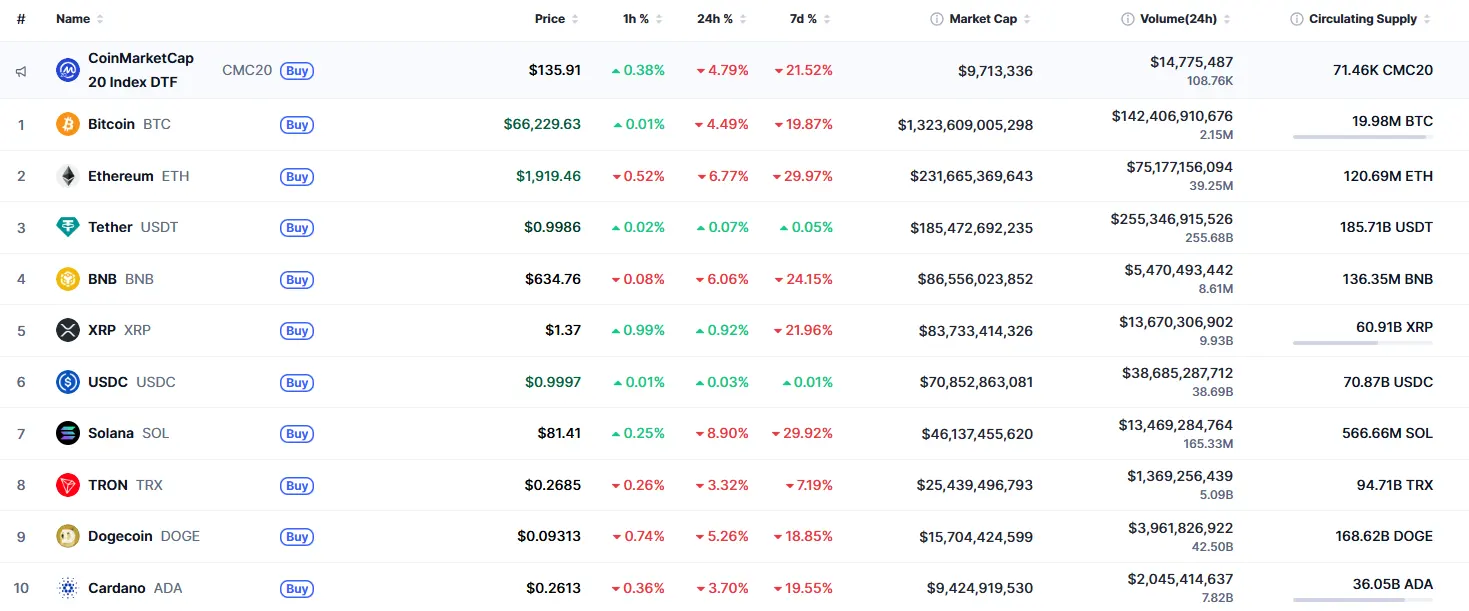
TokenWhy I'm bullish when my $49k Bitcoin prediction is playing out as BTC closes in on major BUY ZONE
Bitcoin has a way of turning numbers into memories.You remember the first time it ripped through a r
2026-02-07 01:03
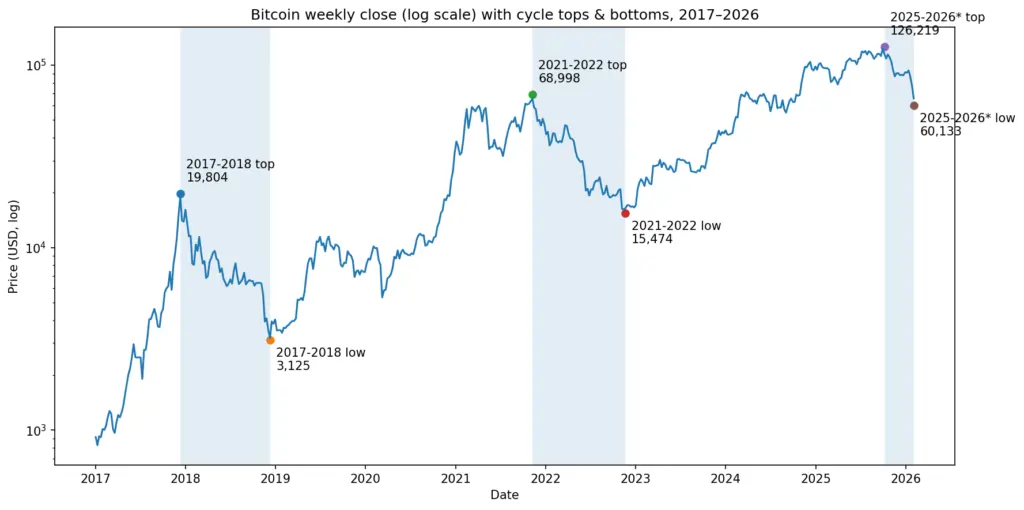
ExchangeAccidental 2,000 BTC Airdrop Crashes Bitcoin Price 10% on Bithumb
South Koreas cryptocurrency exchange Bithumb faced a major operational mishap on February 6, 2026, w
2026-02-06 19:01
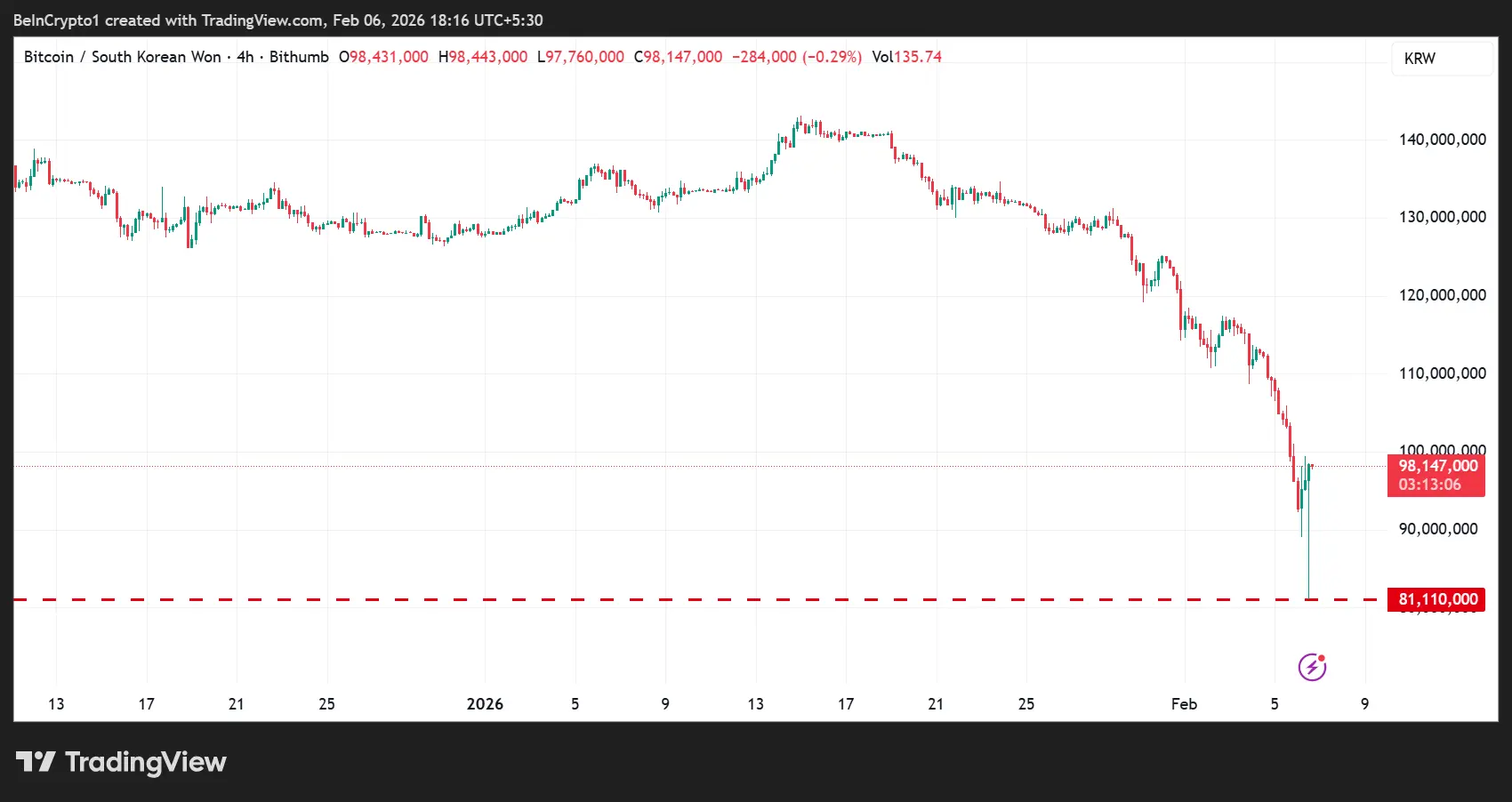
ExchangeBitcoin's slide to $60k puts BTC treasury companies $10B underwater as one major firm is braces for a $27B disaster
Bitcoin's ($BTC) slide to as low as $60,233 overnight, before recovering somewhat to $65,443, has le
2026-02-06 19:00
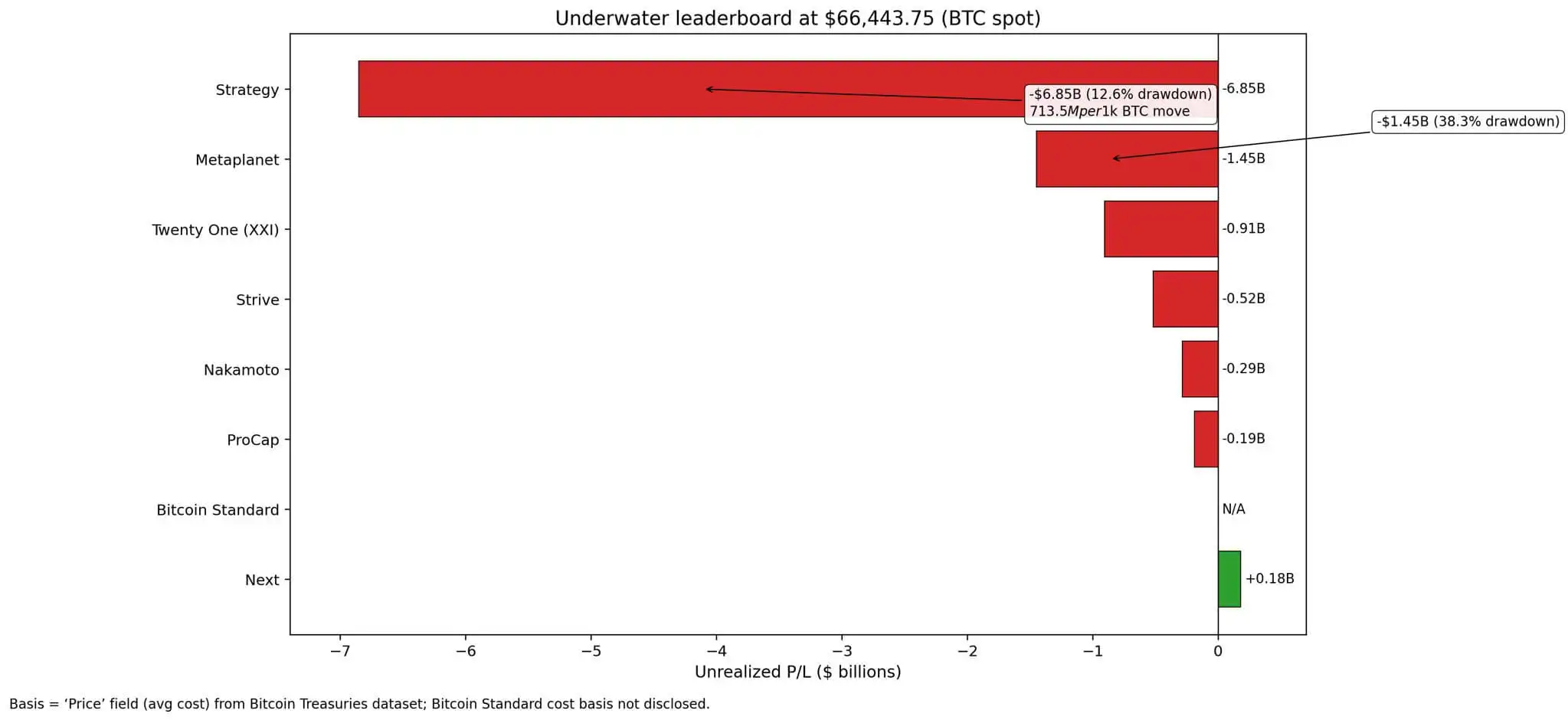
TokenBitcoin miner MARA moves $87 million BTC to various trading desks and exchanges: Arkham
Bitcoin miner MARA moved 1,318 $BTC worth about $86.89 million to a mix of counterparties and custod
2026-02-06 13:26
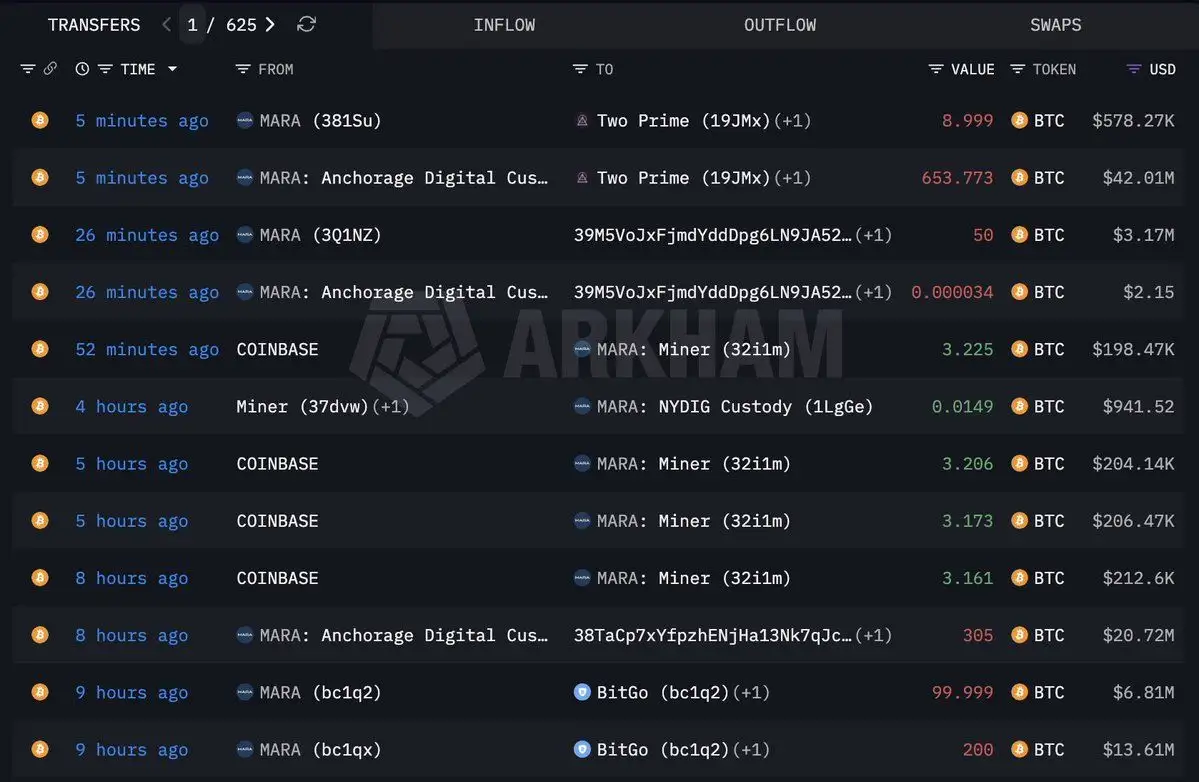


1000+ ratings
View all comments